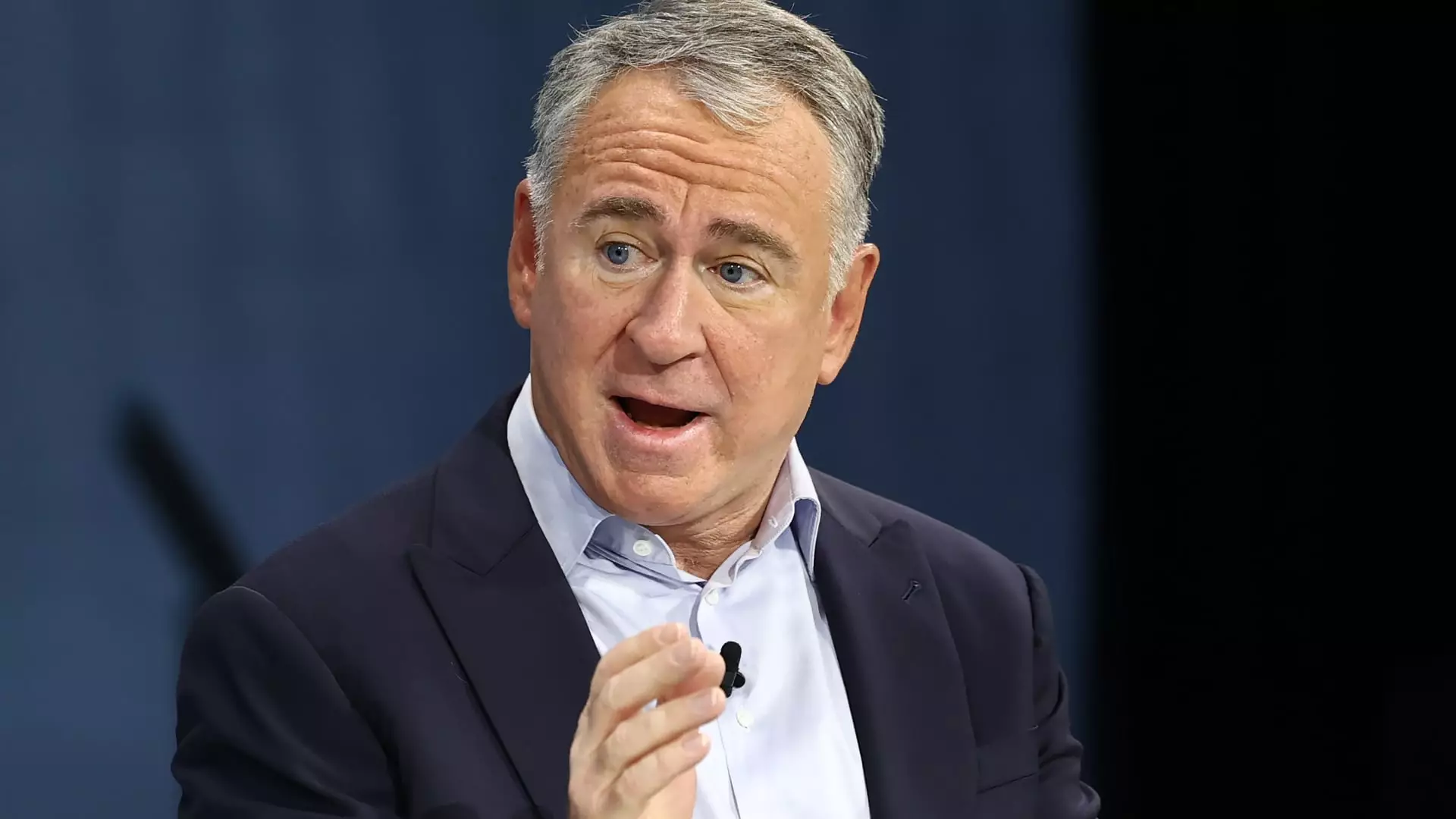In the ever-evolving landscape of global economics, trade policies play a pivotal role in shaping the relationships between nations. Recently, Ken Griffin, the CEO of Citadel, provided insightful and critical commentary regarding the potential fallout from the United States’ trade approach under President Donald Trump. His remarks underscore the pressing concerns surrounding aggressive rhetoric and policy decisions that could reverberate throughout international markets.
Griffin’s assertion that “the bombastic rhetoric, the damage has already been done” reflects a broader unease among investors and CEOs. His concerns highlight a fundamental truth in business: confidence is paramount. When leaders use aggressive and combative language, it not only shapes public perception but also alters the mindset of those who dictate investment strategies. If major players in the business sphere perceive the U.S. as an unreliable trading partner, the implications for long-term investment decisions could be severe. This situation calls into question the broader impacts of rhetoric on the economic landscape, suggesting that diplomacy and cooperation are crucial in financial negotiations.
The economic repercussions of imposing tariffs, such as the 25% duty on steel and aluminum imports, cannot be understated. Griffin argues that such measures hinder the ability of multinational companies to plan for the future. Businesses thrive on stability and predictability; when the groundwork for trade relationships becomes uncertain, it complicates the decision-making process for capital investments. Investments with long lead times become riskier, deterring companies from committing to projects that could generate significant economic benefits over time. This instability is detrimental not only to corporations but also to the broader economies they support.
Griffin’s warning against crony capitalism is particularly salient in this context. The intertwining of industry and government can lead to unequal advantages and economic systems that favor a select few. This phenomenon often arises in environments where protectionist policies are prevalent, resulting in businesses relying more on relationships with government officials rather than on their competitive merits. The potential for cronyism raises ethical concerns and may lead to inefficiencies in the market that stifle innovation and growth.
As discussions around trade continue to evolve, it is essential to analyze the long-term consequences of current policies. The insights provided by Ken Griffin serve as a reminder of the delicate balance between asserting national interests and maintaining healthy trade relationships. For the United States, the challenge lies in fostering an environment that encourages collective progress over divisive measures. As stakeholders navigate these turbulent waters, a focus on constructive dialogue and mutually beneficial agreements will be crucial to ensure economic stability and prosperity in the years to come. In this intricate dance of diplomacy and trade, the rhetoric used can either bolster growth or undermine the very foundations of trust that international trade is built upon.

